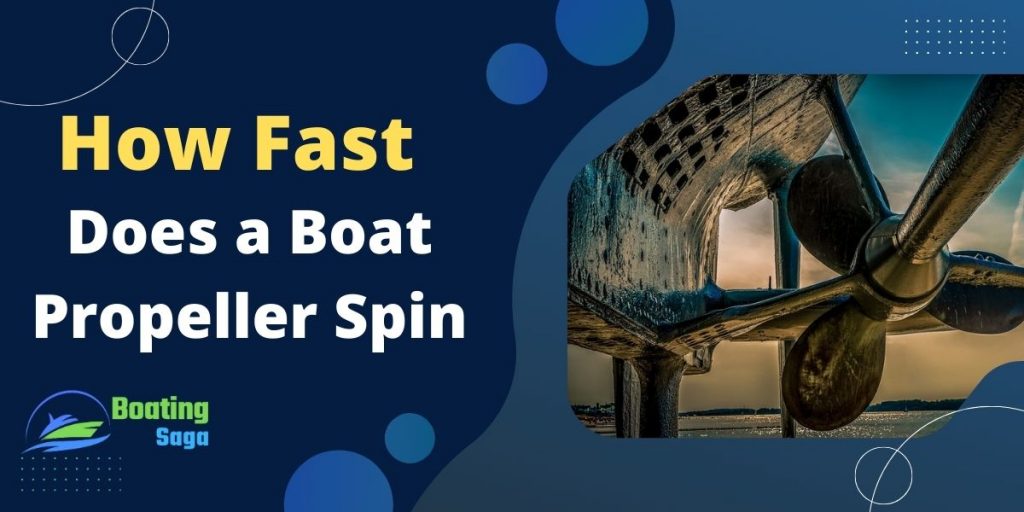
A propeller on a boat is designed to spin quickly in order to create thrust and move the boat forward. The speed at which a propeller spins can vary, depending on the size and horsepower of the engine.
How fast does a boat propeller spin?
On average, a propeller on a boat will spin at around 3,000-3,500 revolutions per minute (RPMs). However, there are some high-performance boats that have propellers that spin as fast as 5,000 RPMs.
The speed at which a propeller spins is important because it affects the amount of force it can generate. A propeller that spins faster will create more force than one that spins slower.
Different Sizes of Boat’s Propeller Spin Differently
When it comes to boat propellers, size does matter. That is because the larger the propeller, the slower it needs to spin in order to produce the same amount of thrust as a smaller propeller.
This is due to something called the propeller’s “pitch.” The pitch of a propeller is basically its diameter multiplied by its rotational speed.
As a result, a 9-foot-diameter propeller that spins 1,200 revolutions per minute (RPM) has a pitch of 10,800 inches. Conversely, a 6-foot-diameter propeller that spins at 1,200 RPM has a pitch of only 3,600 inches.
That means that the larger prop must rotate more slowly to produce the same amount of thrust as the smaller prop.
Why Do Boat Propellers Need to Spin Quickly?
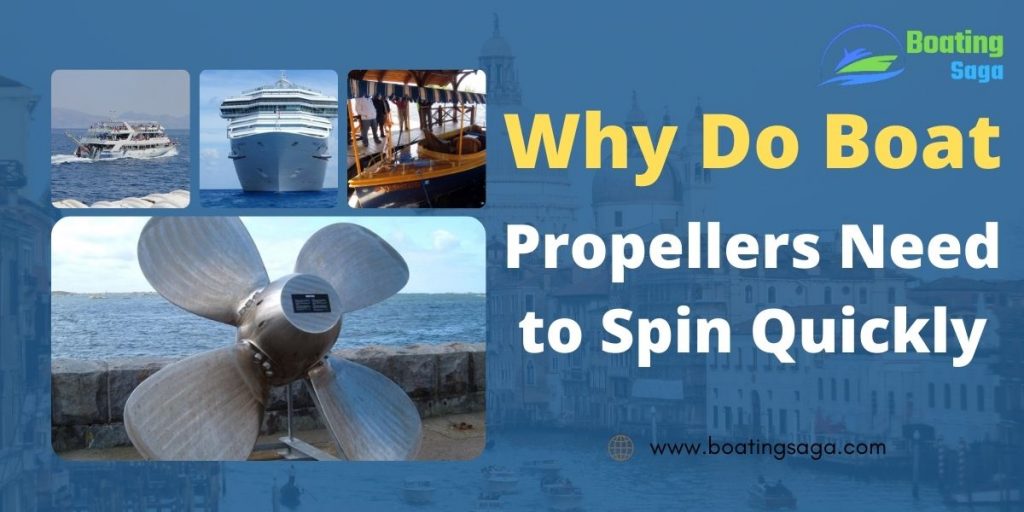
There are a few reasons why boat propellers need to spin quickly.
- The first reason is that the faster the propeller spins, the more thrust it produces. This means the boat can move faster and navigate through the water more easily.
- A fast-spinning propeller is less likely to get stuck in debris or seaweed underwater.
- Additionally, a fast-spinning propeller creates less drag on the boat, which also helps it move more quickly.
- Finally, a quick-spinning propeller creates less noise and vibration, both of which can be annoying and potentially harmful to passengers and crew.
This is why it’s important for propellers to spin quickly - they need to create as much thrust as possible to move the boat efficiently.
Faster Spin Doesn,t Always Mean More Speed
When looking to buy a boat propeller, one of the factors you might consider is how fast the propeller spins. This is because you might think that a faster spinning propeller will mean more speed for your boat. However, this is not always the case.
There are many other factors that contribute to a boat’s speed alongside faster spinning propeller such as its engine size, propeller diameter, weather condition and hull design.
That being said, a faster spinning propeller can still be beneficial. It can help create more torque and thrust, which can result in increased acceleration and top speed. Additionally, it can help reduce drag on the boat, allowing it to move more easily through the water.
Ultimately, whether or not a faster spinning propeller will give you more speed depends on your specific boat and how you use it.
Factors That Affect Boat Propeller Spin
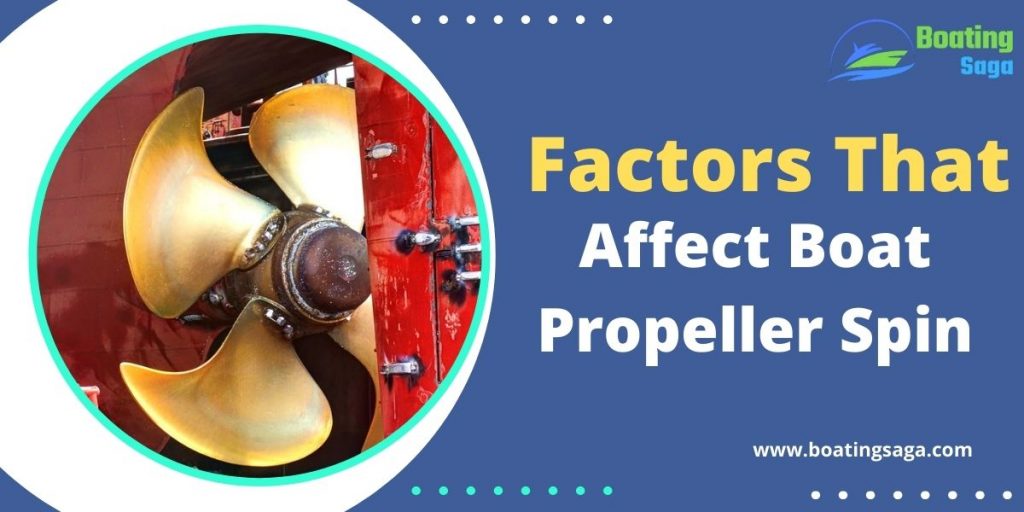
There are many factors that affect how a boat propeller spins.
- The shape and size of the propeller determine how much force it can create. A larger propeller can create more force than a smaller one, but it will also require more power from the engine to spin it.
- The size and weight of the boat determine how much resistance there is to the forward motion of the boat. The larger and heavier the boat, the more resistance there is and therefore, it takes more power from the engine to move it. This means that the engine has to work harder to turn the propeller, which in turn causes it to spin slower.
- Another important factor is the pitch of the propeller - this is the angle of the blades and affects how much speed they can generate.
- The number of blades also affects how much force is created. A three-bladed propeller will create more force than a two-bladed one.
- The speed of the water is another important factor. If the water is moving too fast or too slow, it will affect how well the propeller can spin.
- Finally, the type of material used to make the propeller will influence its durability and how well it performs in different conditions.
Dangers of a Slow-spinning Boat Propeller
The dangers of a slow-spinning boat propeller are many.
- For one, the propeller can cause a great deal of drag on the boat, making it difficult to move.
- Second, This can be dangerous for boaters, as they may not be able to maneuver the boat quickly enough to avoid obstacles or other boats.
- Another danger is that the propeller can get caught in weeds or other objects in the water. This can damage the propeller or stop the boat from moving altogether.
- A slow-spinning propeller can overheat the engine, leading to mechanical failure.
- If the propeller is spinning too slowly, it can cause cavitation. Cavitation is when tiny bubbles form on the surface of the propeller blades and then collapse.
How Can You Make a Boat Propeller Spin Faster?
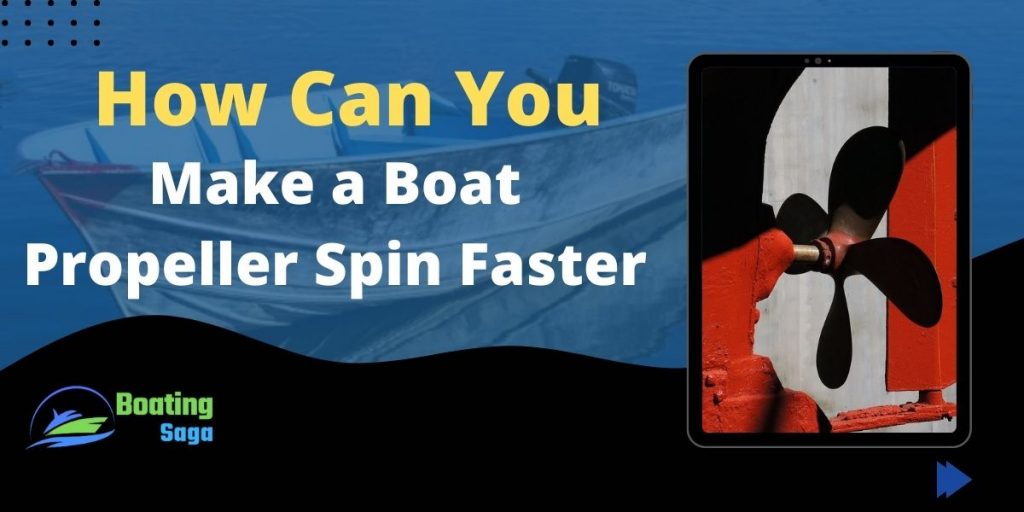
Many things can be done to make a boat propeller spin faster.
- One is to increase the engine RPMs. This can be done by adjusting the throttle, or if the engine is electric, by increasing the voltage to the motor.
- One way to make a boat propeller spin faster is to add more blades. This will create more drag on the water, which will cause the propeller to spin faster.
- You can make your boat propeller spin faster is to improve its efficiency. This can be done by keeping it clean and well lubricated, and by making sure that it is properly aligned with the engine shaft.
- Another way to make a propeller spin faster is to increase the water pressure flowing through it. This can be done by adjusting the boat’s throttle or by changing its gear ratio.
- A propeller can be made to spin faster by increasing its pitch. This can be done by adjusting the blades of the propeller or, if it is an adjustable pitch propeller, by rotating the blades to a different angle.
- Finally, you can also improve your boat’s performance by adding a trim tab to the back of the boat. This will help lift the rear of the boat and create more lift on the propeller blades, making them spin faster.
Additionally, making sure that all of the nuts and bolts are tight will help keep the propeller in place and prevent it from wobbling.
Frequently Asked Questions:
How Fast Does a Cargo Ship Propeller Spin?
Cargo ships rely on propellers to move them through the water. How fast these propellers spin can affect how quickly the ship moves and how efficiently it travels.
Generally, a cargo ship’s propeller will rotate between 200 and 300 revolutions per minute (RPM). However, there are factors that can influence this speed. The size and shape of the propeller, the type of fuel used, and the amount of cargo being carried all play a role in how fast the propeller spins.
How Fast Does a Cruise Ship Propeller Spin?
A cruise ship propeller can spin as fast as from 250-350 revolutions per minute (rpm). That’s enough to push the ship through the water at around 22 knots (25 mph). The propeller is a large, three to four bladed metal disc that sits below the ship’s hull.
It’s connected to the engine room by a long shaft, and as the engine turns, so does the propeller.
What Rpm Should I Run My Outboard?
When it comes to the correct rpm for your outboard motor, there are a few things you need to take into account. The size and weight of your boat, the type of motor and propeller, and the load on the engine are all factors in determining the correct rpm.
For smaller boats (under 20 feet), it is generally recommended that you run your engine at around 3,000-4,000 rpm. For larger boats (over 25 feet), 4,000-5,000 rpm is a more typical range. Finding the right rpm for your outboard can be tricky, but these are some very basic general guidelines that can help.
It’s important to consult your owner’s manual to find the recommended rpm range for your specific motor and propeller combination.
What Will Happen if Boat Propeller Spins Too Fast?
It’s possible for a boat propeller to spin too fast, and when this happens there are consequences.
When a boat propeller spins too fast, the cavitation created can cause serious damage to the propeller and the engine. The high-pressure waves that are created can cause the propeller blades to fracture or even rip off. The cavitation can also cause the engine to overheat.
The blades can break loose from the hub. This can cause the blades to fly off in any direction, and they can seriously injure someone or damage something else on the boat.
In addition, if the propeller spins too fast, it can create a lot of noise and vibration, which can be uncomfortable for passengers and may even damage the boat.
Conclusion
Boat propellers spin at a variety of speeds, depending on the size and type of boat. While a small boat may only require a propeller that spins at 2,000 to 3,000 rpm, a larger boat may need one that rotates at 4,000 to 5,500 rpm. It is important to select the right propeller for your boat in order to ensure efficient and safe operation.
You Can Also Read:

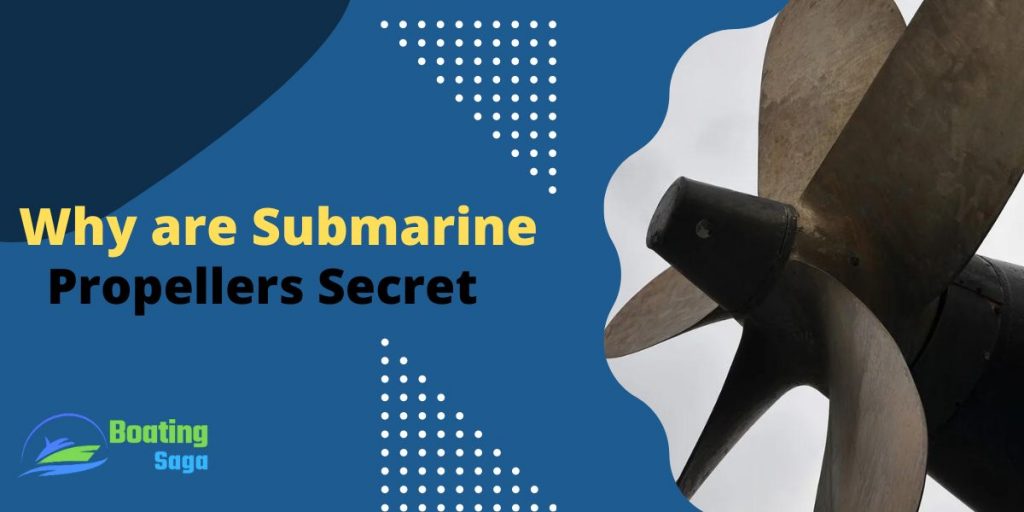

Pingback: Can Ship Propellers Kill You? - (How Dangerous This Thing is)
Pingback: How Does the Number of Blades Affect a Boat Propeller?
Pingback: Why Do Boat Propellers Make Bubbles (4 Reasons to Know)
Pingback: How to Fix Prop Torque (5 Quick and Most Effective Ways)